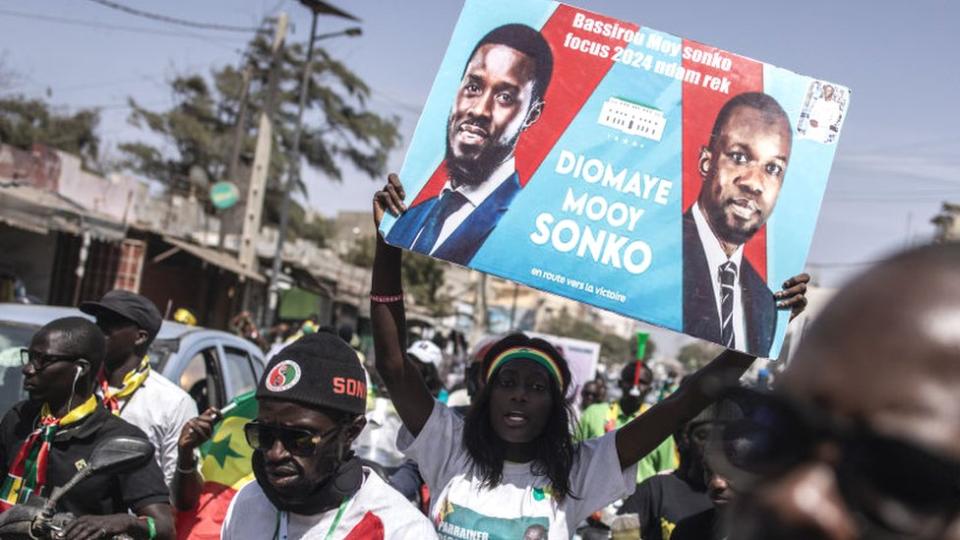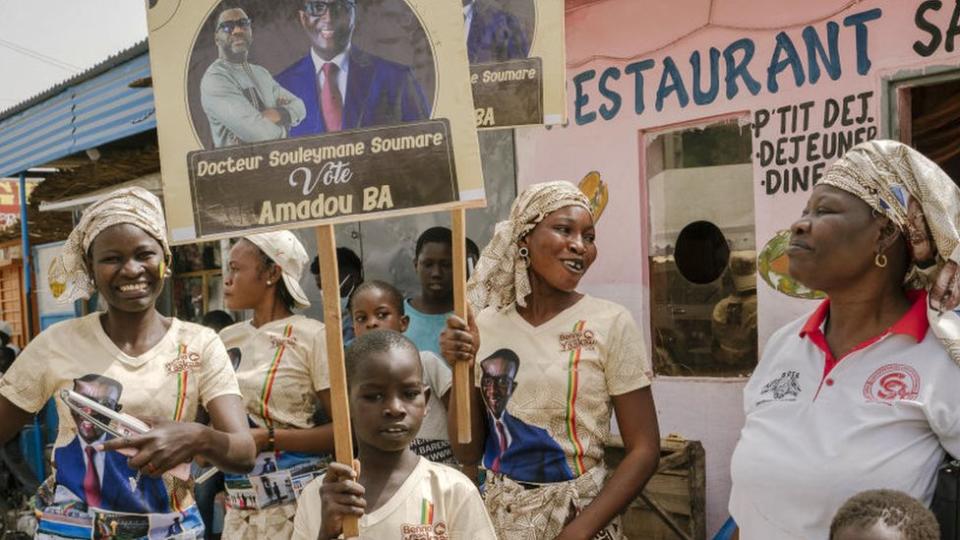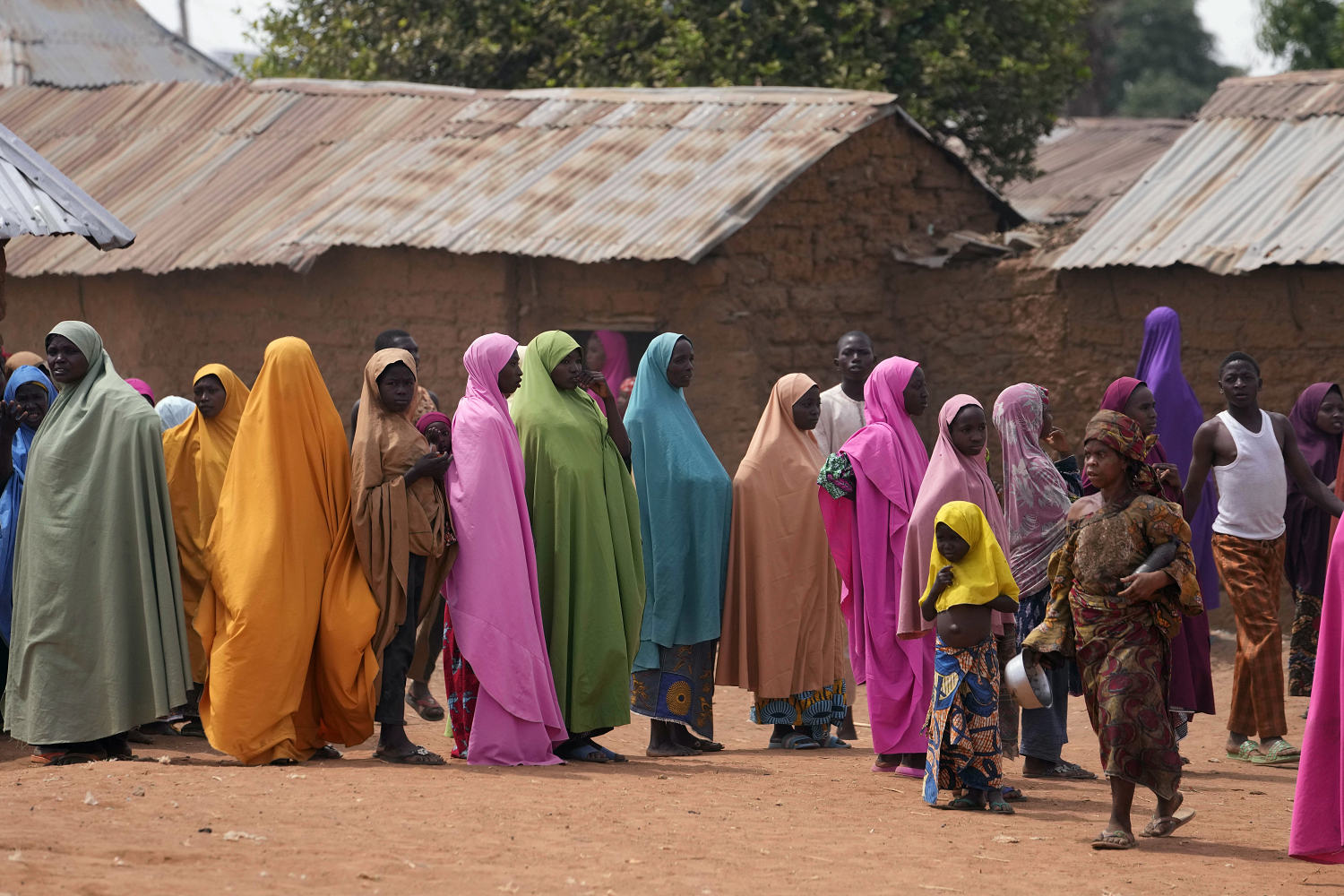Watch CBS News
Be the first to know
Get browser notifications for breaking news, live events, and exclusive reporting.
Watch CBS News
Be the first to know
Get browser notifications for breaking news, live events, and exclusive reporting.

SPRINGFIELD, Ill. — A state parole board member resigned Monday after recommending the release of a man who a day later attacked a pregnant Chicago woman with a knife and fatally stabbed her 11-year-old son while he tried to protect her, according to authorities.
The Illinois Prisoner Review Board’s handling of the case prompted Gov. J.B. Pritzker to order that procedures for dealing with situations involving domestic violence be revamped.
Pritzker announced that LeAnn Miller, 63, of Junction submitted her resignation. Miller had prepared a report recommending Crosetti Brand’s release from prison.
The 37-year-old felon had repeatedly violated orders of protection and threatened Laterria Smith of Chicago, police said. On March 13, investigators said that Brand went to Smith’s apartment armed with a knife and assaulted her. When her son, Jayden Perkins, intervened, Brand stabbed him to death, police said.
Smith, 33, remains hospitalized in critical condition but doctors expect her and her unborn child to live. Her 6-year-old son was present during the attack but was uninjured.
A message seeking comment was left at a number associated with Miller’s home and with the Prisoner Review Board. Pritzker said in a news release that she made “the correct decision in stepping down.” The Democratic governor’s spokesperson, Alex Gough, said he was unaware of Pritzker requesting her resignation.
“It is clear that evidence in this case was not given the careful consideration that victims of domestic violence deserve and I am committed to ensuring additional safeguards and training are in place to prevent tragedies like this from happening again,” Pritzker said in a statement.
Following board procedure, two other board members, Ken Tupy and Krystal Tison, concurred with Miller’s draft order, according to a copy of the order provided by the Prisoner Review Board in response to a public records request from The Associated Press. A phone message was left for Tupy. A number for Tison could not immediately be located.
Pritzker ordered the Prisoner Review Board to “engage experts and advocates to design and implement expanded training” in domestic violence cases for the 15-member board. The board and the Department of Corrections will also review procedures for sharing information on cases involving domestic violence. Pritzker said the case might also raise issues which require legislation to broaden officials’ legal authority in such instances.
Brand, who police say had a relationship with Smith 15 years ago, is charged in Cook County with first-degree murder and a half-dozen other violent felonies related to the attack. He had served half of a 16-year sentence for attacking another ex-partner in 2015 when he was paroled in October.
Brand was shipped back to prison in February after being accused of repeatedly contacting Smith, who has an order of protection against him. He turned himself in after Smith reported he was at the door to her apartment on Feb. 1, repeatedly ringing the bell and pulling on the handle.
But when Brand appeared before the Prisoner Review Board on Feb. 26, he denied going to her apartment and his lawyer provided evidence that his electronic monitoring bracelet did not indicate violations of his movement restrictions, according to a copy of the board’s order. He answered other reported parole violations by saying he sometimes worked late hours at a Red Lobster restaurant.
The board determined there wasn’t enough evidence to verify Smith’s claims, although she was not called to testify.
It is a crowded field of 17 in the battle for Senegal’s top job, but two men – recently freed opposition politician Bassirou Diomaye Faye and the ruling party’s heir apparent Amadou Ba – look most likely to win over voters in Sunday’s presidential election.
Their rivalry underpins a massive divide and clash of outlook in the country, usually regarded as a beacon of democracy in West Africa, especially over its relationship with France, the former colonial power.
The poll is a rushed job – the date was announced with less than three weeks’ notice, following a month of confusion and violent protests.
What seems to unite most Senegalese is the anger directed at outgoing President Macky Sall who tried to postpone the election – originally scheduled for 25 February – until December.
Mr Sall has told the BBC he acted to protect the integrity of the vote after allegations of corruption and disputes over the eligibility of some presidential candidates.
However, critics accused him of seeking to extend his term in office or stop the clock to better prepare his candidate – which he denies.
It led to political turmoil, the intervention of the Constitutional Court, the president agreeing to leave office next month when his term officially ends, and a new election date.
Then last week, some of his fiercest critics – those involved in political protests over the last few years – were freed in a presidential amnesty in order to calm tensions.
This included firebrand opposition leader Ousmane Sonko, who came third in the last election and is hugely popular with young people eager for change.
But the 49-year-old is barred from running as a candidate this time, due to a series of charges he says were politically motivated.
Instead, he is throwing his considerable clout behind Mr Faye, who like him is a former tax inspector and was released from detention at the same time – he was awaiting trial on charges of defamation and spreading fake news.
The two met while working at the tax office and Mr Faye, who turns 44 the day after the election, was previously secretary-general of Mr Sonko’s Pastef party, which was dissolved by the government last year over allegations it had called for an insurrection.
Their slogan “Sonko is Diomaye, Diomaye is Sonko” has gone viral on social media in the last week.

The pair – greeted on their release by celebrating crowds – are pushing their anti-establishment vision for institutional reforms. It is an Afrocentric and nationalist agenda, including plans to renegotiate the country’s mining and energy contracts.
Mr Faye also wants Senegal to stop using the CFA franc – the West African single currency that is pegged to the euro, with the financial backing of the French treasury, and which is regarded by his supporters as a relic of the colonial era.
The proposal has been labelled as irresponsible by his opponents, although Mr Sonko has sought to quell such fears by saying they would seek to reform the regional currency first and only consider introducing a national currency if that should fail.
In contrast to this radical path, Mr Ba, prime minister until he resigned to contest the election, seeks to represent continuity and stability.
At his rallies, the 62-year-old has hit out at the former Pastef pair, labelling them “bandits” and saying a vote for him is a vote for “greater peace and prosperity”.
He argues his ministerial track record proves he will oversee development and create one million jobs in five years – as the staid statesman woos the youth vote.
Mr Ba may have been on the political scene for the last decade, but he is a bit of a closed book for most. He has tried to open up as a man of the people, revealing his love for reggae music and Bob Marley.
With more than half of Senegal’s population under the age of 25 and growing frustration over unemployment and boats full of migrants heading for Europe, it is an important demographic.

Arame Gueye Sene, executive director of the youth group Social Change Factory, told the BBC that young people were engaged in campaign issues, although the majority of the seven million registered voters were aged 35 and over.
“We see them on the streets, but we’re not sure that a lot of them are able to vote next Sunday,” she said.
A significant challenge for all candidates has been that the postponed election has fallen in the middle of the Muslim fasting month of Ramadan.
In Senegal, 95% of the population is Muslim and consequently key cities like the capital, Dakar, and Thiès are unusually quiet for an election campaign.
People tend to save their energy until they break their fast at sunset, meaning candidates are having to rethink their campaign strategies.
Booklets detailing proposed policies have been shared online, as well as live recordings of rallies.
“We have to double efforts to mobilise voters,” Anta Babacar Ngom, a business executive and the only woman in this race, told the BBC.
Candidates are still making an effort to tour the country – as Mohamed Ly, a member of Khalifa Sall‘s campaign team, said that undecided voters could prove key.
Mr Sall, the 68-year-old former mayor of Dakar and no relation to the president, is one of two candidates who could prove a kingmaker or push the vote into a second round. To win outright, a contender must obtain more than 50% of the vote.
The other such candidate is Idrissa Seck, the 64-year-old former mayor of Thiès. Both have loyal followings.
Another influential player is Karim Wade. The 55-year-old is the son of ex-President Abdoulaye Wade, though his candidacy was rejected as he had not renounced his French citizenship in time – electoral laws do not allow for dual nationality.
His Senegalese Democratic Party (PDS) has traditionally benefitted from the support of the Mourides, the most influential Muslim brotherhood in Senegal. On Friday, it announced that it would back Mr Faye – a move that could prove decisive.
Most of the electorate may feel bruised by the upheaval of the last month but electoral directorate head Birame Sene is confident they have nothing to worry about.
He told the BBC everything was in order and well prepared for Sunday’s vote – when Senegal’s much-vaunted democratic values will be put to the test.

ABUJA, Nigeria — Nearly 300 kidnapped Nigerian schoolchildren have been released, local officials said Sunday, more than two weeks after the children were seized from their school in the northwestern state of Kaduna and marched into the forests.
At least 1,400 students have been kidnapped from Nigerian schools since 2014, when Boko Haram militants kidnapped hundreds of schoolgirls from Borno state’s Chibok village in 2014. In recent years, abductions have been concentrated in the country’s northwestern and central regions, where dozens of armed groups often target villagers and travelers for ransom.
Kaduna state Gov. Uba Sani did not give details of the release of the 287 students abducted from their school in the remote town of Kuriga on March 7, at least 100 of them aged 12 or younger. In a statement, he thanked Nigerian President Bola Tinubu “particularly ensuring that the abducted school children are released unharmed.”
Tinubu had vowed to rescue the children “without paying a dime” as ransom. But ransoms are commonly paid for kidnappings, often arranged by families, and it is rare for officials in Nigeria to admit to the payments.
No group has claimed responsibility for the Kaduna kidnapping, which locals have blamed on bandit groups known for mass killings and kidnappings for ransom in the conflict-battered northern region, most of them former herders in conflict with settled communities.
At least two people with extensive knowledge of the security crisis in Nigeria’s northwest told The Associated Press that the identity of the abductors is known.
Murtala Ahmed Rufa’i, a professor of peace and conflict studies at Usmanu Danfodiyo University, and Sheikh Ahmad Gumi, a cleric who has negotiated with the bandits, said they are hiding in the region’s vast and ungoverned forests.
Arrests are rare in Nigeria’s mass kidnappings, as victims are usually released only after desperate families pay ransoms or through deals with government and security officials.
The Kaduna governor thanked Nigerian security forces and officials for the release of the students. “I spent sleepless nights with the National Security Adviser, Mal. Nuhu Ribadu … fine-tuning strategies and coordinating the operations of the security agencies, which eventually resulted in this successful outcome,” he said.
ABUJA, Nigeria (AP) — Nearly 300 kidnapped Nigerian schoolchildren were released Sunday, local officials said Sunday, more than two weeks after the children were seized from their school in the northwestern state of Kaduna.
Kaduna state Gov. Uba Sani did not give details of the release of the 287 students, who abducted from their school in the remote town of Kuriga on March 7. In a statement, he thanked Nigerian President Bola Tinubu “particularly ensuring that the abducted Kuriga school children are released unharmed.”
Tinubu had vowed to rescue the children “without paying a dime” as ransom.
Abductions of students from schools in northern Nigeria are common and have been a major source of concern since 2014, when Islamic extremists kidnapped over 200 schoolgirls in Borno state’s Chibok village. In recent years, abductions have been concentrated in the country’s northwestern and central regions, where dozens of armed groups often target villagers and travelers for ransom.
A Cyprus court sentenced a British man to two years in prison for killing his wife in their retirement home to spare her the pain from her illness, but prison authorities freed him Monday because of time he already had spent behind bars.
Defense lawyer Nicoletta Charalambidou told The Associated Press that Cyprus Prisons Department authorities tabulated the time 76-year-old David Hunter had spent in custody since the December, 2021, killing and decided to release him immediately.
The court had earlier this month convicted Hunter of manslaughter after accepting testimony that his decision to suffocate his wife Janice was a made on the spur of the moment because he could no longer stand seeing her weeping in pain from a type of blood cancer she feared would develop into full-blown leukemia.
Victoria Jones/PA Images via Getty Images
State prosecutor Andreas Hadjikyrou told the AP that the court took into account that Hunter, 76, acted “out of love” to save his wife. She was suffering from a blood ailment when he closed her mouth and nose with his hands as she sat in a recliner in their Paphos home.
It also took into consideration Hunter’s advanced age and that he had no previous criminal record.
Justice Abroad, a group that defends Britons facing legal troubles in foreign countries, welcomed word of Hunter’s early release.
“This has been a tragic case and difficult for all of those involved with it, but today’s decision was the right one and allows David and his family to grieve together,” said Michael Polak from Justice Abroad.
Hunter had faced a charge of premeditated murder, but the court found in its July 21 ruling that the prosecution didn’t prove beyond a reasonable doubt that there was premeditation in his actions.
The court had accepted witness testimony that Janice feared her blood ailment would develop into full-blown leukemia and had repeatedly pleaded with her husband to take her life because she didn’t want to share the fate of her sister, who died of the disease.
Hunter attempted to take his own life by consuming a large amount of pills after suffocating his wife, but medical staff saved his life.
Hunter, a retired miner from the English region of Northumberland, and his wife had been teenage sweethearts and married for 52 years.
The court cited expert testimony that Janice Hunter suffered from myelodysplastic syndrome, a type of blood cancer which “to a large degree” – as much as 45% – could turn into leukemia, although there was no proof that she had indeed developed the disease because no definitive tests were conducted.
But the court said both husband and wife believed that Janice would develop it because of her sister’s fate.
David Hunter’s earlier assurances to Janice that he would help her fulfill her wish to end her life and not suffer anymore didn’t indicate any premeditation, the court said.
Hadjikyrou said defense lawyers had rejected a plea deal in December 2022 for the defendant to plead guilty to manslaughter because they insisted the facts of the case include an agreement Hunter and his wife allegedly made for him to take her life. He said the court didn’t accept that such an agreement had indeed been made.
Charalambidou said it was the Cypriot attorney-general who scrapped the plea deal because he wouldn’t accept as fact that Janice had repeatedly asked her husband to take her life.
Hadjikyrou said the Cyprus attorney-general has 10 days to decide whether to appeal the sentence.
In Cyprus, a largely Christian Orthodox country, euthanasia is taboo and there is no law on assisted suicide.
The judges agreed with the defense case that Hunter had not committed premeditated murder but had acted spontaneously to end the life of his wife, who had been begging him to do so because of the pain she suffered.
“The way the accused acted at the material time does not show premeditation for his illegal act but, on the contrary, an impulsive act without a clear mind,” said presiding Judge Michalis Drousiotis.
“Murder must be the result of planning and committed in cold blood.”
Towards the end of her life, Hunter said his wife was so unwell that she could no longer walk upstairs, and they had to sleep in a lounge chair on the ground floor of their home.
During repeated blood transfusions for cancer, Hunter said she repeatedly asked him to end her life.
Polak said that “the sentencing exercise was not a simple one, given that a case like this has never come before the courts of Cyprus before”.
“The result of today’s hearing, and the court’s previous decision finding Mr Hunter not guilty of murder, is what we have been fighting for in this case, and David is very pleased with the outcome today,” he said.
Hunter’s family launched an online fundraiser to pay for legal fees and help bring him back to the U.K. It had raised nearly $50,000 as of Tuesday.
“My dad devoted himself to caring for my mum,” his daughter Lesley wrote on the page. “My father is in the latter stages of his life, and we just want him to be with us.”
AFP contributed to this story.
CAIRO (AP) — Security authorities in eastern Libya freed at least 385 Pakistani migrants who were held in trafficking warehouses in an overnight raid, a migrant rights group said Monday.
Al-Abreen, a group which helps migrants in Libya, said the Pakistani nationals were released early Monday from smugglers’ warehouses in the al-Khueir area, roughly 5 miles (8 kilometers) south of the eastern Libyan city of Tobruk. The migrants — among them children — were later transferred to a nearby police headquarters, it said in a post on its official Facebook page.
Esreiwa Salah, an activist with al-Abreen, told The Associated Press the Pakistani migrants arrived in Libya intending to travel to Europe but were detained by smugglers who demanded a ransom for their release. No further details were given.
Several pictures posted on al-Abreen’s Facebook page showed dozens of purportedly freed Pakistani migrants sitting outside of a warehouse.
Libya is the dominant transit point for migrants from Africa and the Middle East trying to make it to Europe. The country plunged into chaos following a NATO-backed uprising that toppled and killed longtime autocrat Moammar Gadhafi in 2011. Oil-rich Libya has been ruled for most of the past decade by rival governments in eastern and western Libya, each backed by an array of militias and foreign governments.
Human traffickers have benefited from the decade of instability, smuggling migrants across borders from six nations, including Egypt, Algeria and Sudan. They then pack desperate migrants seeking a better life in Europe into ill-equipped rubber boats and other vessels for risky voyages on the perilous Central Mediterranean Sea route.
A vessel that departed from Libya carrying an estimated 700 migrants, including about 350 Pakistanis, sank of the Greek coast in June. Only 104 people, including 12 Pakistanis, were rescued.
Pakistan is experiencing an economic crisis that is driving thousands of mostly young men to seek work abroad. Many travel to Libya with the hope of eventually reaching European shores.